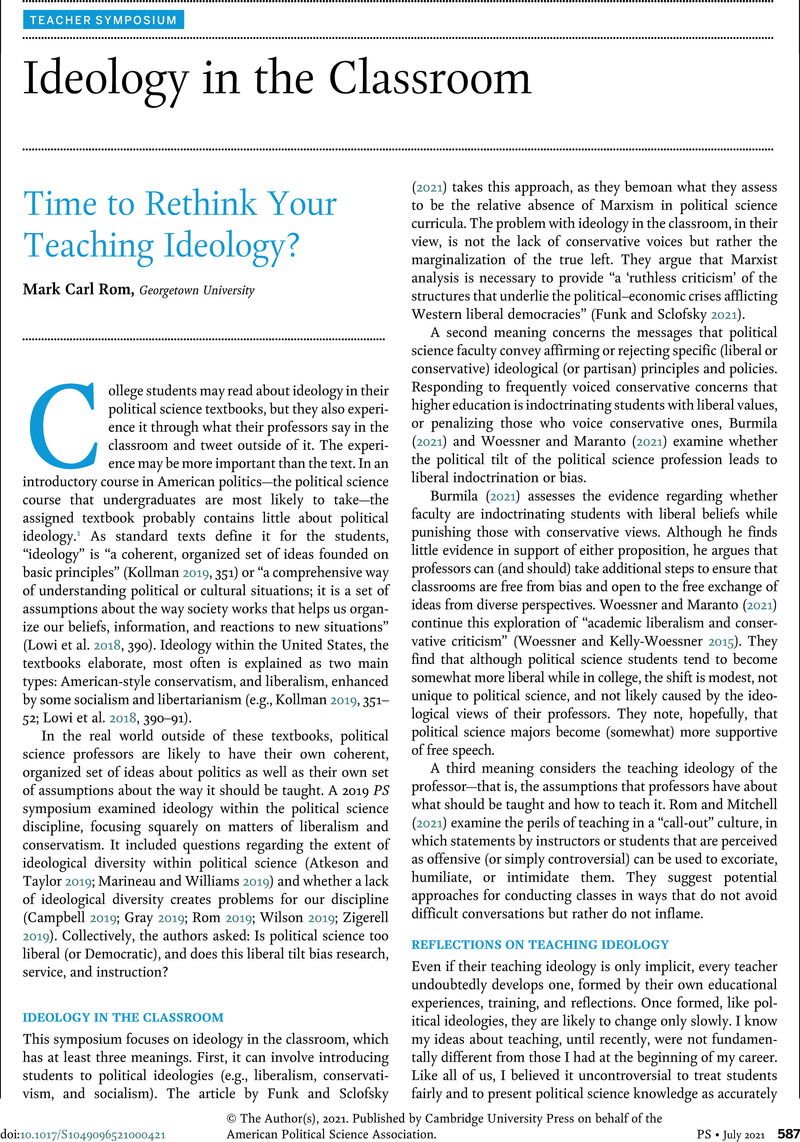Crossref Citations
This article has been cited by the following publications. This list is generated based on data provided by Crossref.
Metzgar, Matthew
and
McGowan, Mary Jo
2022.
Viewpoint Diversity at UNC Charlotte.
Acta Educationis Generalis,
Vol. 12,
Issue. 3,
p.
1.
Tian, Xianghui
and
Hashmi, Mohammad Farukh
2022.
Exploring Intelligent Teaching for Teachers of Ideology and Politics in the Context of Artificial Intelligence.
Wireless Communications and Mobile Computing,
Vol. 2022,
Issue. ,
p.
1.



